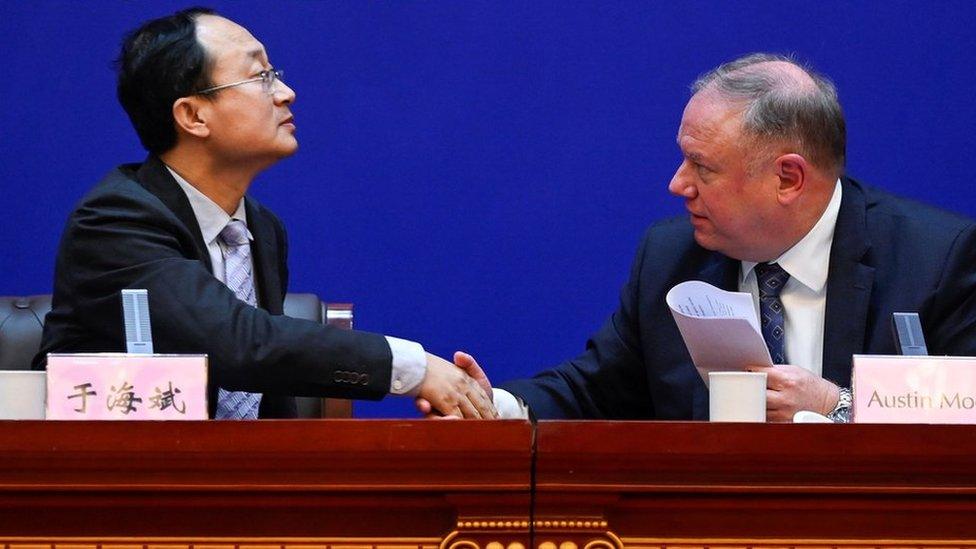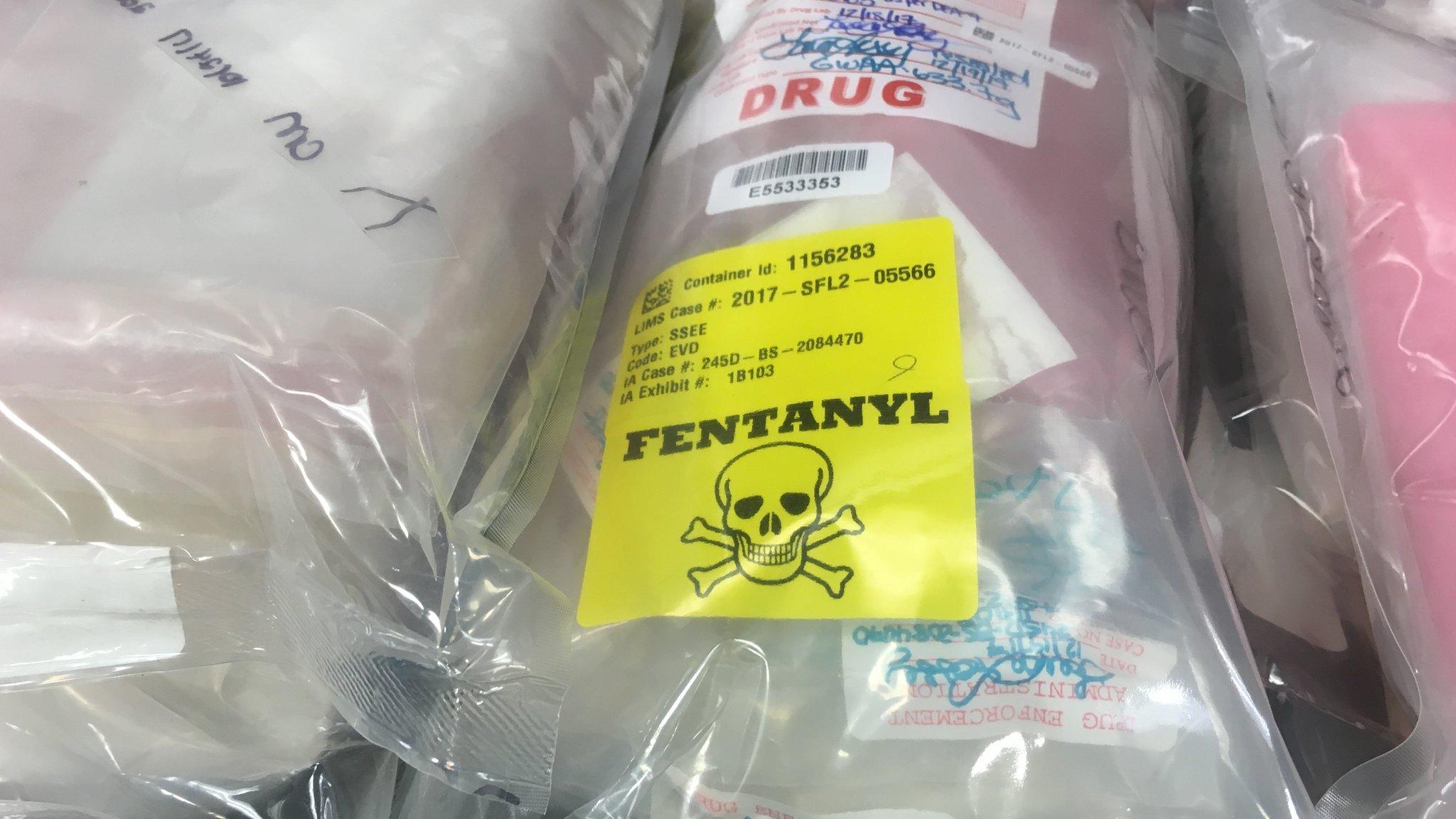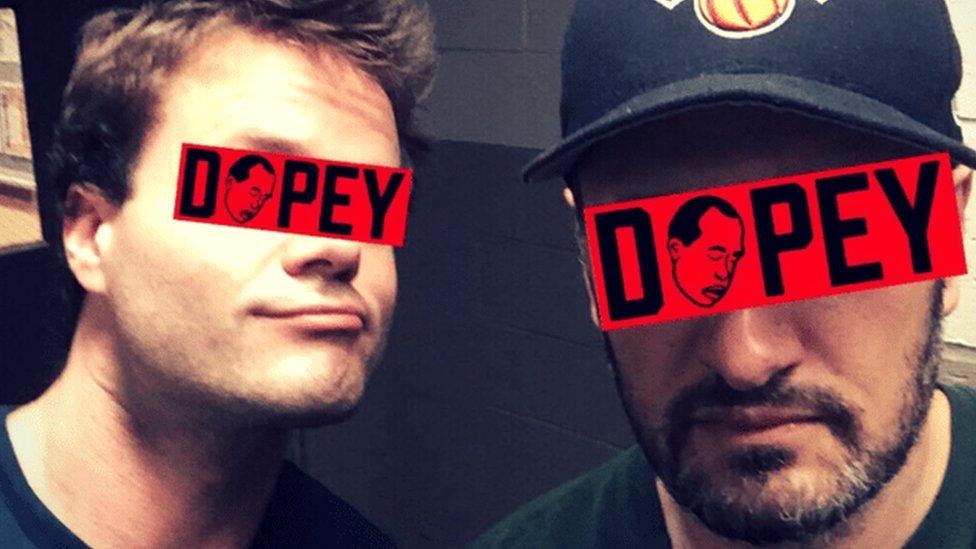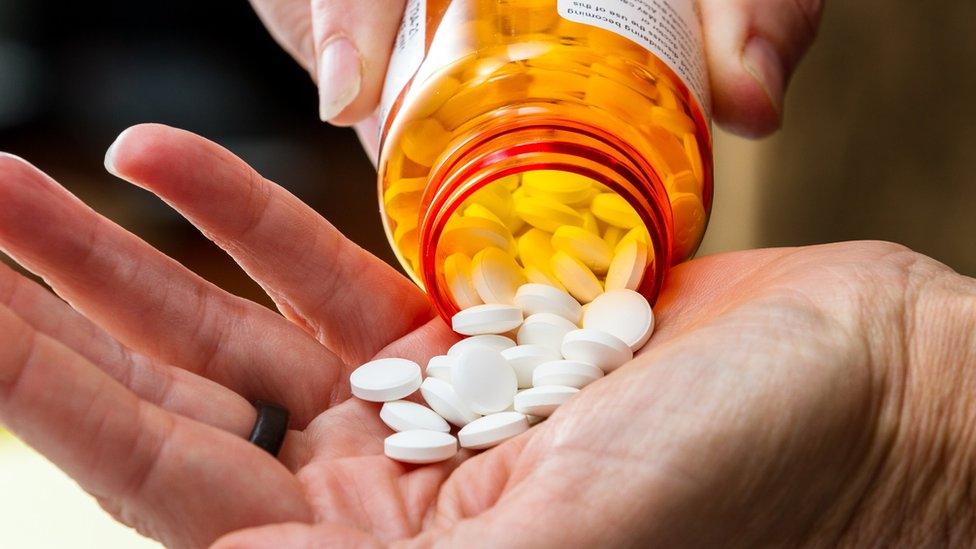Fentanyl smugglers: Nine jailed in landmark US-China operation
- Published

It is the first time the US and China have worked together on such a case
Nine people have been jailed in China for smuggling fentanyl into the US, after a landmark joint investigation by American and Chinese officers.
In August, US President Donald Trump said China was not doing enough to stop the opioid - 50 times more potent than heroin - being shipped to the US.
The Chinese court said it was the first time US and Chinese officers had worked together on such a case.
Mr Trump has claimed fentanyl kills "100,000 Americans a year".
According to US authorities, the figure is likely to be lower. The Centers for Disease Control and Prevention said in 2017 - the most recent full data available - that synthetic opioids, other than methadone, were linked to 28,000 deaths, external.
Results of the joint operation were announced by Chinese and US authorities in China's northern city of Xingtai.
One person was given a suspended death sentence, which normally means life in prison, and two others were given life sentences. The six others received lesser sentences, ranging from six months to 10 years in prison.
A White House statement from the Office of National Drug Control Policy praised the "concrete action taken by China [a]s a direct result of President Trump's strong leadership on this issue".
"We look forward to further cooperation to stop the flow of these deadly substances into the United States," the statement added.
Why is fentanyl a problem in the US?
Fentanyl is said to be driving a huge rise in drug addiction.
The prescription painkiller can only be approved in the US for severe pain arising in cases such as cancer treatment. But it is often obtained illegally and used to make counterfeit narcotics.
On America's trail of destruction
It is relatively cheap and is frequently used by people unable to get drugs legally - either because the doctor won't prescribe them, they don't have the insurance policy or because they have run out.
The US government last year warned that a surge in cocaine deaths was being exacerbated by the presence of fentanyl.
Beijing has in the past used tax breaks to encourage fentanyl production, and President Trump has long accused the country of being the source of the problem.
Allow X content?
This article contains content provided by X. We ask for your permission before anything is loaded, as they may be using cookies and other technologies. You may want to read X’s cookie policy, external and privacy policy, external before accepting. To view this content choose ‘accept and continue’.

China earlier this year announced that it was adding all fentanyl-related substances to its list of controlled narcotic drugs, following a plea from the US.
But Mr Trump later accused Chinese President Xi Jingping of not fulfilling his promise to crack down on the drug.
How did the operation work?
The operation began in August 2017, when Homeland Security officers in New Orleans interviewed a "co-operating defendant", according to Austin Moore, a US immigration and customs attaché in China.
The defendant provided the name and contact information for a dealer in China, known as "Diana". The following month, the information was passed to Beijing.
Officers in New Orleans then organised a fake fentanyl purchase, culminating in a wire transfer payment to "Diana" in November 2017. This led to an "extraordinary" number of arrests in China, Mr Moore said.
As well as the Chinese prosecutions, the investigation led to "three major criminal arrests" in New York and Oregon.
"As the success of this joint investigation demonstrates, Chinese and American investigators have the capacity to collaborate across international borders," Mr Moore said.
Yu Haibin, a senior official with China's National Narcotics Control Commission, told reporters in Xingtai it was vital to crack down on demand as well as supply.
"If illegal demand cannot be effectively reduced, it is very difficult to fundamentally tackle the fentanyl issue," he said, according to the AFP news agency.
- Published24 September 2018

- Published25 October 2017

- Published24 June 2019

- Published21 October 2019
